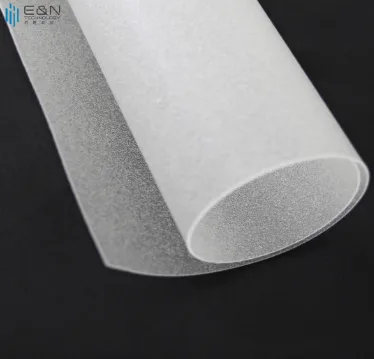Interlayer films are meant to improve the characteristics and performance of the composite structure of your glass project or architectural glass. They perform various functions, including UV protection, acoustic insulation, safety, and security.
Understanding interlayer films requires considering several variables, including material composition, thickness, mechanical characteristics, and application-specific needs. Manufacturers frequently modify interlayer films to satisfy particular requirements, changing characteristics like flexibility, adhesion strength, optical qualities, or chemical resistance.
These films join various glass layers, improving performance, security, and safety. You can choose the best interlayer film for your application by being knowledgeable about various available varieties.
Here is a guide to assist you in comprehending the various interlayer film types:
They are commonly used in automotive windshields, architectural glass, and safety glass applications.
PVB film is commonly used in laminated safety glass; when the glass breaks, the PVB film holds the shattered pieces together, reducing the risk of injury from flying glass shards. It enhances the safety of occupants and prevents break-ins or thefts.
Ethylene Vinyl Acetate (EVA) Film
They are commonly used in architectural glass, solar panels, and decorative laminated glass applications.

They find applications in automotive glazing, security glass, and where flexibility is required.
They are often used in structural glazing, hurricane-resistant glass, and high-security applications.
Apart from the above-mentioned interlayer films, various specialty films are available for specific applications.
Optical Films are used in various electronic displays, including LCDs, OLEDs, and touchscreens, to enhance visibility, improve contrast, reduce glare, and provide privacy.
Barrier films are designed to offer high resistance to moisture, oxygen, and other gases.
Security Films are manufactured to protect against tampering, counterfeiting, or unauthorized access.
Decorative films add visual appeal, patterns, colors, or textures to various surfaces. They are often applied to windows, glass panels, or furniture to create privacy, enhance aesthetics, or provide branding opportunities.
Consider aspects including safety standards, aesthetic preferences, performance qualities, and environmental circumstances when choosing an interlayer film. Consulting industry professionals might make finding the best interlayer film for your particular application easier. Contact our team at E & N TECHNOLOGY to order interlayer film for your requirements.